

Annual Sustainability Report for 2024
The Sustainability Strategy was financed by the European Union and developed with support from the National Recovery Plan (NPO) under the project Acceleration of Green Skills and Sustainability at BUT.
Registration number: NPO_VUT:MSMT-2143/2024-5.
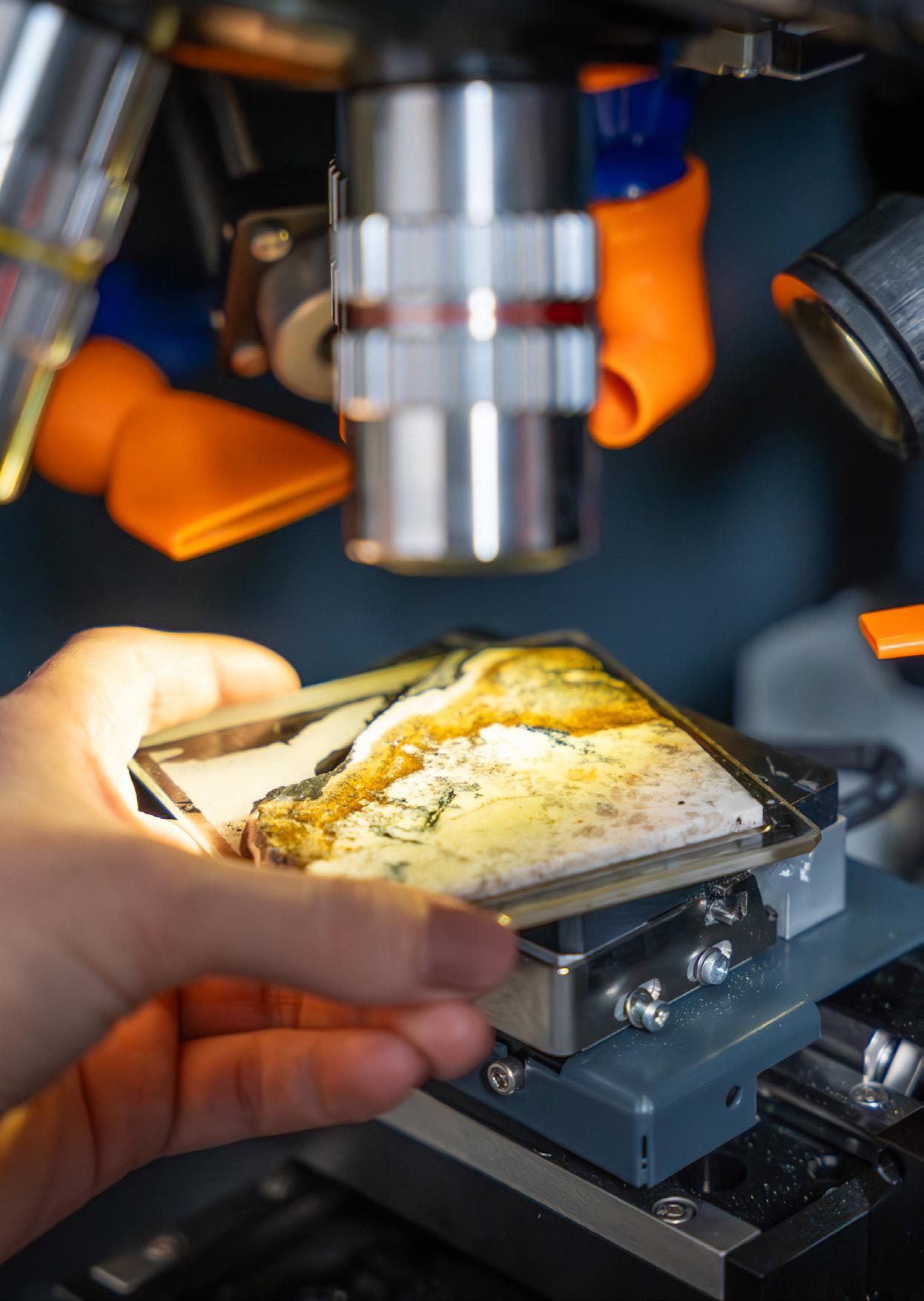
Our Approach to Sustainability 1
Word From the Rector
“As a leading technical university in the Czech Republic, we accept our responsibility for a sustainable future. We regard environmental and climate protection not only as essential for ensuring quality of life, but also as a major technological challenge. If not a technical university, then who else should deliver effective technical solutions and nature-friendly technologies?”
doc. Ing. Ladislav Janíček, Ph.D., MBA, LL.M.
Rector of BUT
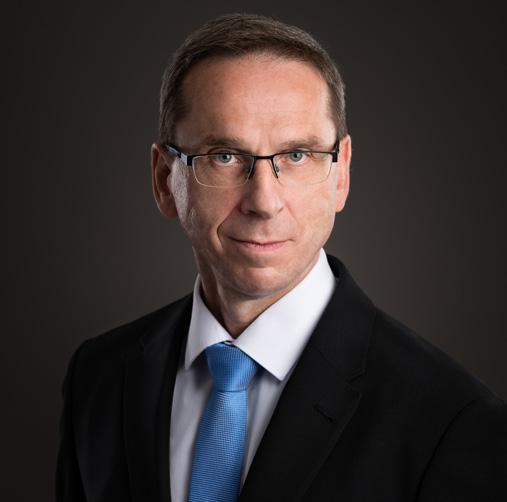
Our Sustainability Approach
Our Vision
Since our foundation in 1899, we have maintained a strong connection between tradition and innovation. The key to our success lies in our focus on skills development and our ability to respond swiftly to new challenges. At our university, we take a comprehensive approach to sustainability – we care about the environment, social aspects, and the economy. This is reflected not only in our research and education, but also in our everyday operations.
We recognise that universities have a unique opportunity – and responsibility – to contribute to solving global issues. That is why we actively engage in preparing future leaders who will address today’s challenges, including climate change. Thanks to our systematic approach, we are progressing towards fulfilling the Sustainable Development Goals. The BUT Sustainability Report for 2024 follows on from the Sustainability Strategy, which aims to integrate sustainability into both daily operations and the university’s long-term planning.
The year 2024 marked a key milestone for our university on its path towards innovation and responsible practices. Based on a thorough analysis of the 2023 emissions footprint and the current state of the university, we developed a Sustainability Strategy that includes action plans for various areas of the university, a communication concept, and the involvement of our stakeholders in sustainability matters. From 2025 onwards, we will publish Annual Sustainability Reports to transparently communicate our progress.
Following a workshop held at our university in November 2024, attended by key representatives of our faculties and institutes, we developed a shared and unified vision for the university’s sustainable development. This vision serves as our strategic framework guiding us towards achieving long-term sustainability across all crucial areas – environmental, economic, and social.
BUT is a modern, open, and research-driven university that integrates sustainability principles into all areas of its activities. It is a recognised authority in education, research, development, artistic and creative activities, with an emphasis on the practical application of results and social responsibility. As a responsibly managed and attractive institution for students, staff, and partners, it actively shapes a sustainable future through high-quality education and excellent research, systematic collaboration, and efficient use of the resources to it.
Sustainability
Office
Since 2024, responsibility for sustainability has been held by the Vice-Rector for Artistic Activities and Sustainability, doc. MgA. Milan Houser.
In 2024, the Sustainability Office was also established, led by Sustainability Coordinator Ing. Kateřina Myslivcová and, since January 2025, supported by Sustainability Development Specialist Bc. Tereza Kučerová.
Engagement
We involve all key actors in our sustainability efforts. By collaborating with various groups both within and outside the university, we strive to achieve the Sustainable Development Goals.
Internal Stakeholders
BUT and Faculty Management
Students and Student Associations
Newsletters; intranet; presentation of university project outcomes.
Promotion of student-led projects via university channels; organisation of student competitions and sustainability-focused volunteer activities; presentation of information on final theses and research projects in the field of sustainability.
Academic Staff, Researchers, Artists and Employees Online forums; sustainability-focused conferences; communication campaigns and public events promoting sustainability; integration of knowledge into courses, classes, and research projects.
External Stakeholders
BUT Alumni
Secondary School Students and Graduates / Prospective BUT Students
Networking events; alumni newsletters; Zvut.cz portal.
BUT website and social media channels targeting applicants; competitions and challenges via social media; summer schools and urban day camps on the theme of sustainability.
General Public and Local Communities BUT sustainability website and social media; podcasts (e.g. Technically Speaking podcast); awareness campaigns on sustainability topics.
Media
External Partners
Municipalities
Organisation of sustainability-themed events; sharing of information and campaigns on social media (Facebook, Instagram, Twitter, LinkedIn); creation of articles, reports, videos, or podcasts on the university's sustainable projects.
Networking events in the field of sustainability.
University involvement in city sustainability initiatives (e.g. Climate Week).
Educational, Scientific and Artistic Institutions Conferences, festivals, and campaigns; use of art institutions for the visual promotion of sustainability through installations, exhibitions, and performances.
Our University in Numbers – 2024
17,599
Total number of students, of which 4,978 are women and 4,505 are international students
4,124
Graduates of accredited degree programmes, of which 1,235 are women and 959 are international students
757,870
Total number of main course meals sold in the Halls of Residence and Dining Services, of which 602,830 were sold to university students
Brno University of Technology is the second largest technical university in the Czech Republic, with a tradition of excellence in education and research spanning over a century. Across eight faculties and three university institutes, the university prepares experts in a broad range of technical, scientific, and artistic disciplines, with a strong emphasis on sustainable solutions for the future.
673 Incoming international students 4 New spin-off/start-up companies 321 Degree programmes, of which 92 are in a foreign language
3,008 Employees, of which 1,185 are women
376 (21% of the total) Academic and research female staff
157 Lifelong learning courses of which 66 are run within the University of the Third Age


































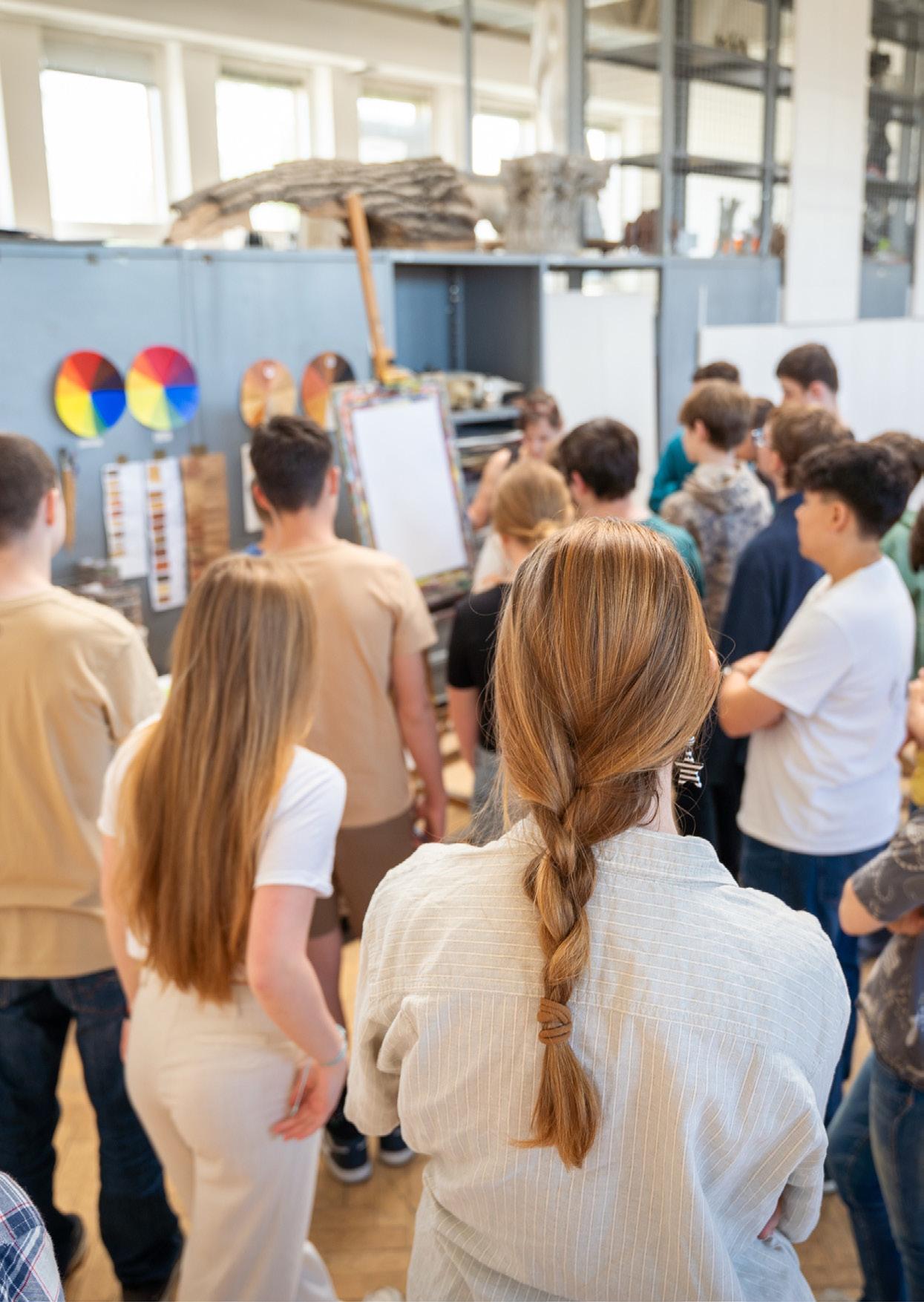
Topics Close to Us 2
Based on a detailed analysis of the university and its external environment during the preparation of the Sustainability Strategy in 2024, we identified the key material sustainability topics that significantly influence its operations.
At our university, sustainability lies in the integration of the Sustainable Development Goals (SDGs) into all our activities. These global UN goals help us address major contemporary challenges, such as climate change, social inequality, and the provision of quality education for all.
The diagram below presents the key SDGs where, as a university, we achieve the most significant impact.

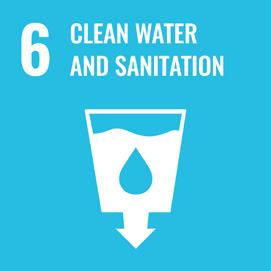

SDG 4: Ensure inclusive and equitable quality education and promote lifelong learning opportunities for all.
We are committed to ensuring equal access to inclusive and quality education by updating study programmes with a focus on sustainability topics and supporting lifelong learning through the Continuing Education and Counselling Centre (CECC) and the Alfons Counselling Centre.
SDG 6: Ensure the availability and sustainable management of water and sanitation for all.
We focus on the efficient use of water in our operations, improving water quality, and addressing wastewater issues through research projects.
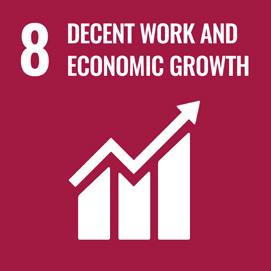
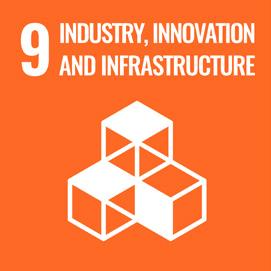
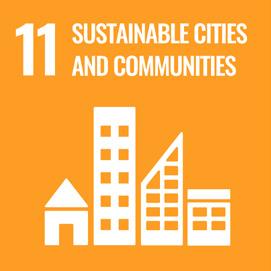

SDG 7: Ensure access to affordable, reliable, sustainable, and modern energy for all.
We are increasing the share of renewable energy sources in our operations and strengthening our research, projects, and international cooperation in the areas of clean energy and energy efficiency.
SDG 8: Promote sustained, inclusive, and sustainable economic growth, full and productive employment, and decent work for all.
We focus on developing strategic management, enhancing research collaboration, and implementing lifelong learning courses tailored to sustainability and practical needs.
SDG 9: Build resilient infrastructure, promote inclusive and sustainable industrialisation, and foster innovation.
We support scientific research and technological innovations that contribute to environmental protection and the development of sustainable infrastructure. Our collaboration with industrial partners is crucial in this regard.
SDG 11: Make cities and human settlements inclusive, safe, resilient, and sustainable.
We contribute to the development of sustainable cities and communities through research projects focused on inclusive and safe urbanisation.
SDG 12: Ensure sustainable consumption and production patterns.
We focus on reducing waste, promoting sustainable practices in our operations and public procurement, and advancing research in sustainable production and consumption.
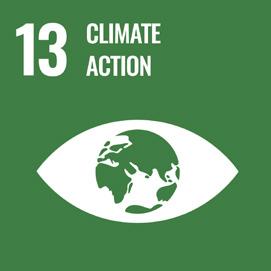
SDG 13: Take urgent action to combat climate change and its impacts.
We integrate climate action into our strategies and raises awareness about climate change through our educational and research activities.
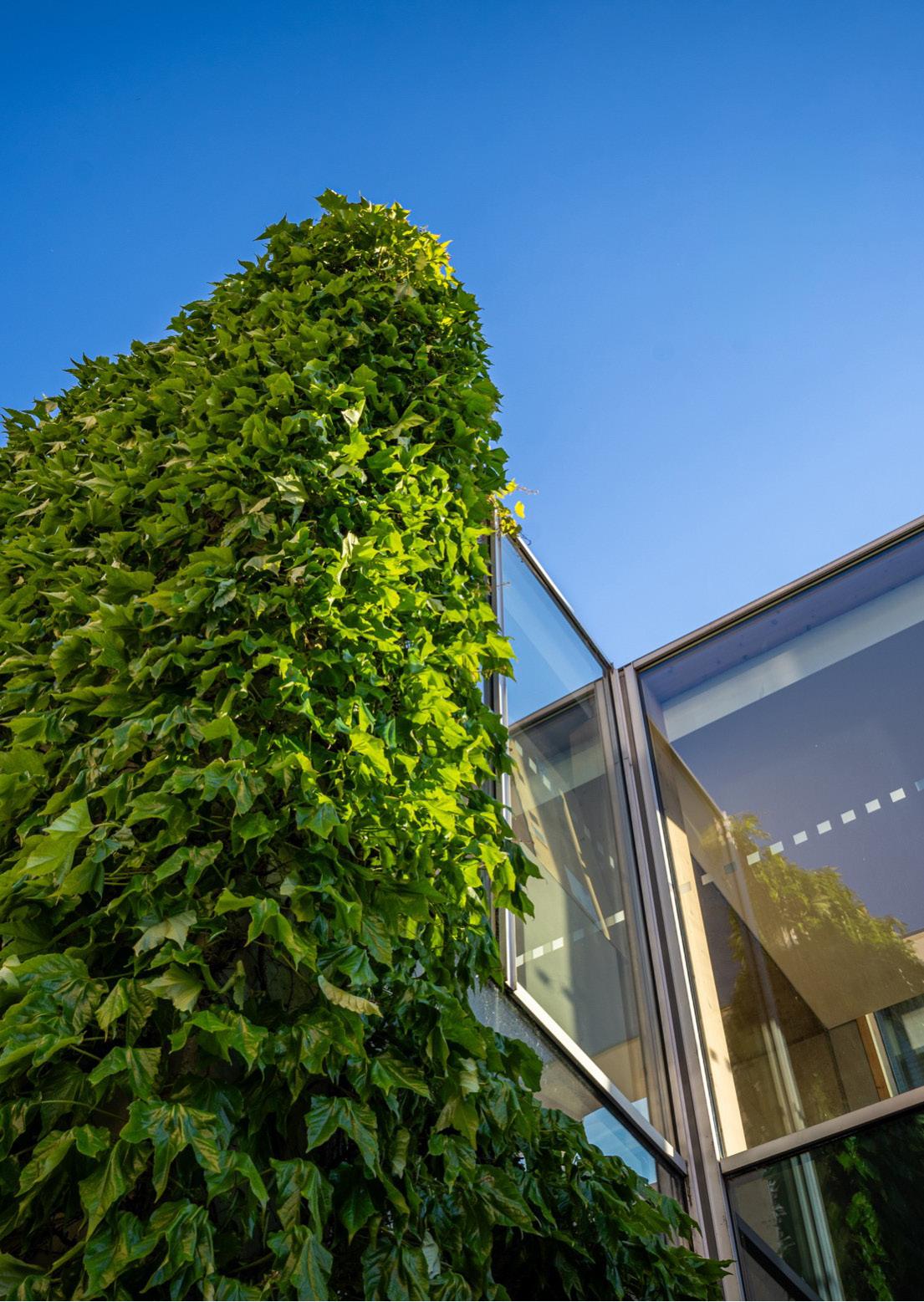
Areas of Sustainable Development at BUT 3
Areas of Sustainable Development at BUT
EDUCATION
RESEARCH AND CREATIVE ACTIVITIES
The education area encompasses studies at all levels aimed at developing knowledge in sustainability, as well as lifelong learning and staff training. It includes study programmes, pedagogical innovations, practical experiences (projects, internships), and tools for sharing best practices among educators.
The area of science, art, and research includes the development of new technologies, interdisciplinarity, the integration of research with technology and societal aspects, the practical application of research results, research impact, and a responsible approach to scientific, research, and artistic projects.
SOCIAL RESPONSIBILITY
UNIVERSITY OPERATIONS
The third role of the university is linked to the preceding areas and includes collaboration in sustainability with communities, public institutions, businesses, cultural and social organisations, as well as international entities, particularly in Europe. It also encompasses public education, support for entrepreneurship, innovation, culture, arts, and the university's communication activities.
This area focuses on ensuring the functioning of the university, its infrastructure, and environment, including property management. It covers topics such as energy efficiency, renewable resources, waste management, recycling, water, transport, greenery, governance, and activity reporting.
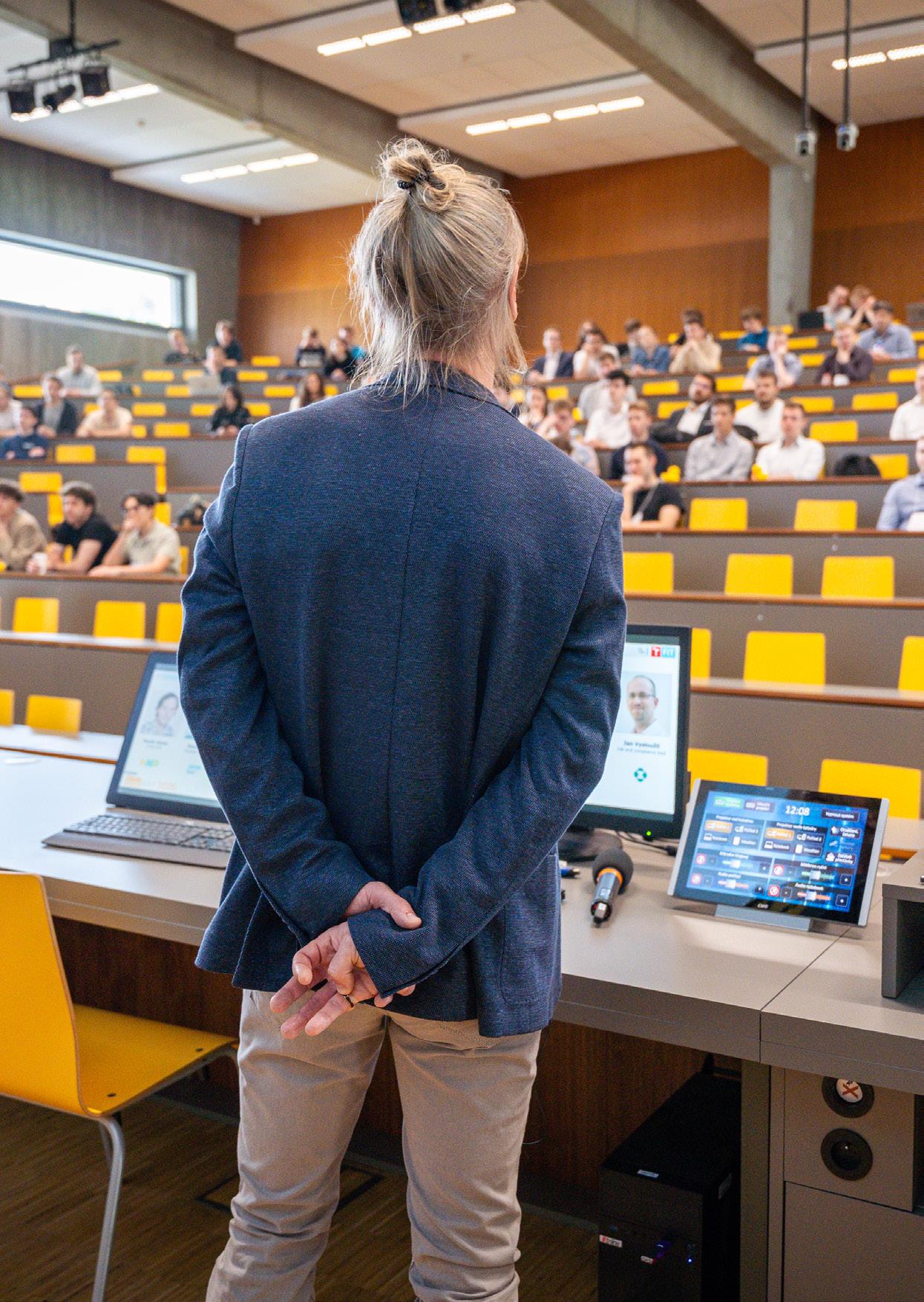
Education 4
One of our main objectives in the field of education is the accreditation of new degree programmes that address current issues. In recent years, we have been expanding our offer of Bachelor’s, Master’s, and Doctoral Study Programmes in the area of sustainability. In doing so, we promote sustainable thinking among our students and prepare experts capable of tackling global challenges such as climate change and social inequality.
Key SDGs


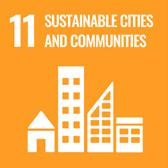
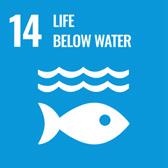
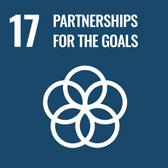
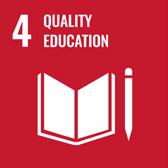

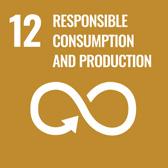
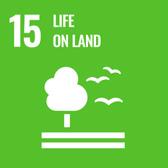

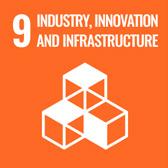
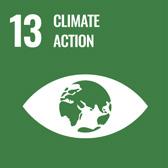
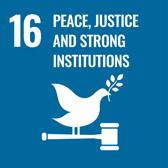
Our Focus in 2024
• Modernising existing and accrediting new degree programmes (Bachelor’s, Master’s, Doctoral Study Programmes, and Lifelong Learning Programmes) that integrate the topic of sustainability.
• Deepening interfaculty cooperation in disciplines and courses dealing with sustainability.
• Integrating social aspects into degree programmes and courses.
• Expanding double degree programmes in sustainability in partnership with international universities.
• Extending accredited follow-up qualification programmes, including Master of Science type programmes within lifelong learning.
• Mapping current capacities and opportunities within lifelong learning.
• Supporting students in addressing sustainability topics in their final theses.
• Providing education in sustainability aligned with the demands of professional practice and social responsibility.
What We Achieved in Practice
Double Degree Programmes in Sustainability (in partnership with international universities)
In 2024, we launched a number of new degree programmes focused on sustainability issues, including double degree programmes, specialised courses, and lifelong learning opportunities.
Accredited Degree Programmes in Sustainability
• Environmentally Advanced Buildings (FCE)
• Environmental Engineering (FCE)
• Energy Engineering (FME)
• Applied Analytical, Environmental and Forensic Chemistry (FCH)
• Architecture and Urbanism (FA)
• Automotive Electronics and Electromobility (FEEC)
• Advanced Automotive Engineering (FME)
Thanks to the Memorandum of Cooperation on Electromobility Development between us and the City of Brno, our students have been able to focus on sustainability and electromobility in their Bachelor’s and Master’s theses since 2022.
• Master’s programme Environmental Sciences and Engineering, with the University of KoblenzLandau (FCH)
• Master’s programme Bioengineering, in cooperation with the University of Applied Sciences Technikum Wien (FEEC)
• Doctoral programme Advanced Materials and Nanosciences, in cooperation with RWTH Aachen University and Alexander Dubček University of Trenčín (CEITEC)
Lifelong Learning Programmes of the Master of Science Type in Sustainability – a New Feature
• MSc in Cyber Security (FEEC)
• MSc in Civil Engineering (FCE)
• MSc in Environmental Engineering (FCE)
Social Aspects in Education at Our University
• Bachelor’s, Master’s, and Doctoral programmes in Architecture and Urbanism (FA), focusing on social issues in territorial development and the preservation of its values
• Sexual Violence Prevention Workshop as part of the Orientation FFA course (FFA)
• Environmental Management (FBM)
• Sustainability and Circular Economy (FBM)
• Residential Buildings course addressing the topic of social housing (FCE)
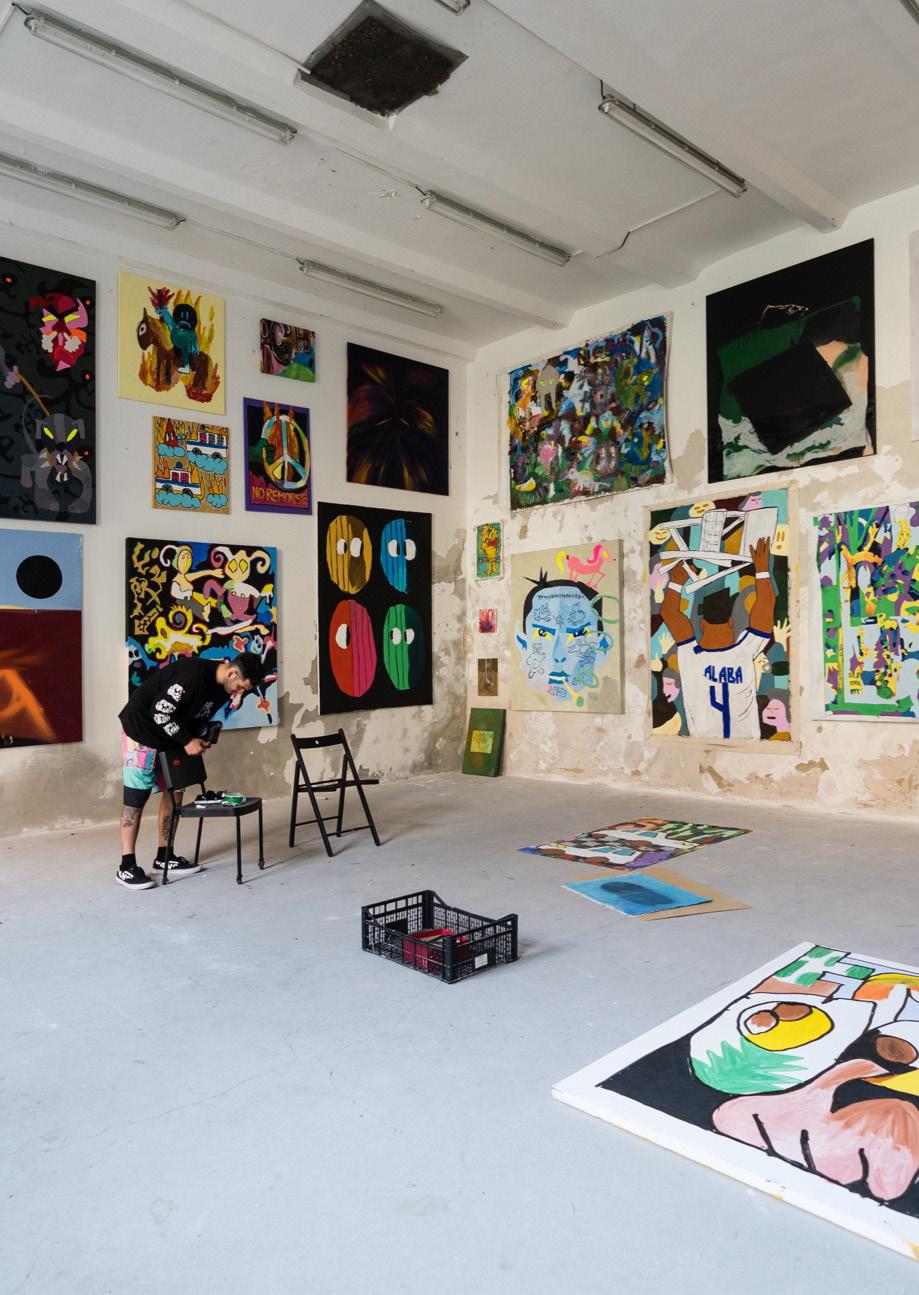
Research and Creative Activities 5
At the university, we perceive science, art, and research as dynamic and inclusive fields that constantly adapt to current societal challenges. We have developed the Open Science Strategy for the period 2022–2025, which also includes an action plan for 2024–2025. Open Science represents a modern and sustainable approach to research, where digital technologies are employed to make knowledge and education accessible to all.
Key SDGs












Key areas of our research projects dealing with sustainability
Environment and Climate Change
We are working on emissions reduction, energyefficient buildings, renewable energy sources, and the circular economy, including waste management.
Technologies of the Future
As a leading technical university, we focus on developing new technologies – in particular, electromobility, semiconductor development for modern chips, advanced materials, nanotechnologies, aerospace and space technologies, and quantum technologies.
Sustainable Energy
We actively engage in the research and development of sustainable energy solutions, such as hydrogen technologies, nuclear energy, and innovative energy storage systems.
Innovation for the Digital Era
We work on ensuring cybersecurity, apply artificial intelligence for innovative solutions, and contribute to the development of modern technologies and Industry 4.0 concepts.
Health
In the field of health, we focus on biomedical engineering and the development of technologies that bring forward innovative treatment methods and improve patients’ quality of life.
Our Focus in 2024
• Integrating environmental topics into science, art, and research at the university.
• Integrating social topics, including gender equality, into science, art, and research at the university.
• Developing research infrastructure at the university with a focus on sustainability.
• Implementing sustainability projects funded from various sources (TACR, Czech Science Foundation, Ministry of Industry and Trade, Horizon 2020, Horizon Europe, and operational programmes in line with the Sustainable Development Goals).
• Coordinating sustainability-related science, art, and research activities across faculties and university institutes.
• Supporting international collaboration in fields related to sustainable development (e.g. among partner universities within the EULiST alliance).
• Linking research and scientific projects to the Sustainable Development Goals.
• Raising public awareness of outcomes and results in science, art, and research related to sustainability.
Centres of Excellence in Research Infrastructure at Our University
ADMAS – CENTRE OF ADVANCED MATERIALS, STRUCTURES AND TECHNOLOGIES
• Research and development of sustainable construction materials and technologies
• Sustainable transport systems
• Smart city concepts
• Circular economy
NETME CENTRE – NEW TECHNOLOGIES FOR MECHANICAL ENGINEERING
• Environmental engineering
• Renewable energy sources
• Water protection
• Hydrogen technologies
• Emission footprint reduction
• Semiconductor materials
CVVOZE – CENTRE FOR RESEARCH AND UTILISATION OF RENEWABLE ENERGY SOURCES
• Testing and development of modern energy systems and renewable energy sources
• Application of renewable sources in manufacturing, transport, and the energy sector
CMV CENTRE – LABORATORIES FOR ADVANCED MATERIALS ANALYSIS AND NEW TECHNOLOGIES DEVELOPMENT
• Research on advanced materials and their chemical and physical properties
• Analysis of nanostructures, biomaterials and polymer composites used in medicine, electronics, and the automotive industry
IT4INNOVATIONS – SUPERCOMPUTING FOR COMPUTATIONAL MODELLING AND SIMULATIONS
• Computing power for advanced modelling, simulations, and artificial intelligence
• Numerical simulations in a wide range of fields from mechanical engineering to molecular biology and medical imaging
SIX CENTRE – LABORATORIES FOR WIRELESS NETWORKS TESTING, IOT, AND CYBERSECURITY
• Development and testing of advanced communication technologies, including 5G networks, IoT, sensor systems, and cybersecurity solutions
• Electromobility
• Circular economy
• Energy-efficient buildings
What We Achieved in Practice
Environmental Topics in Science and Research
TOPIC
CONSTRUCTION
WATER MANAGEMENT
DESCRIPTION OF ACTIVITY
Iveta Nováková from FCE BUT introduced an innovative method in 2024 for improving the fire safety of concrete. She also designed decorative “Narvik marble” from recycled concrete, promoting the aesthetic use of recycled materials in construction.
Experts from BUT, Palacký University, and Mendel University developed a strip-cropping methodology that effectively prevents water-induced soil erosion and increases biodiversity.
FORESTRY Filip Šalomon from FME is developing algorithms for forest tree analysis using laser scanning data. His method enables efficient tree diameter measurement and biomass estimation.
CIRCULAR ECONOMY
ELECTROMOBILITY
Silvestr Figalla from FCH developed a method for using waste sludge from plastic recycling as a lightweight additive in brick manufacturing. This approach replaces scarce wood shavings, enhances brick properties, and addresses the landfill issue for this type of waste.
Denisa Djordjevićová from FME developed an innovative method to separate cellulose fibres from toilet paper in municipal wastewater. The resulting biochar can be used in energy production or as a component of substrates for green roofs and parking areas.
Volteek offers a modular system for monitoring, managing, and advanced diagnostics of energy storage with a wide input voltage range. This project, developed by current and former BUT students, is primarily intended for battery storage manufacturers.
Social Topics in Science and Research
At the university, there are also projects focused on social issues within science and research.
• A significant project is “Vector of Poverty” at the FA, which has been exploring since 2023 how architecture can contribute to affordable and community-based housing.
• In connection with the Gender Equality Plan 2022–2024, workshops on the gender dimension in research were held at the university in 2024.
ENERGY
ENVIRONMENTALLY FRIENDLY MATERIALS
SEMICONDUCTOR TECHNOLOGIES
The Wattee software, developed by Lukáš Jablončík’s team from FEEC BUT, optimises the use of energy from renewable sources and distributes it efficiently to batteries or EV chargers. The project won the BUT Student Entrepreneurship Award.
The Impact of Energy Price Changes on Consumer Behaviour in the Czech Republic – FBM
Researchers from FCH BUT, in cooperation with FORTES interactive, developed a self-cleaning film called LOTUS Foil, which protects public touchscreens from the accumulation of organic pollutants.
The university spin-off DYNANIC from BUT developed a technology for more efficient use of programmable chips, increasing their throughput and simplifying their application in high-performance demanding uses.
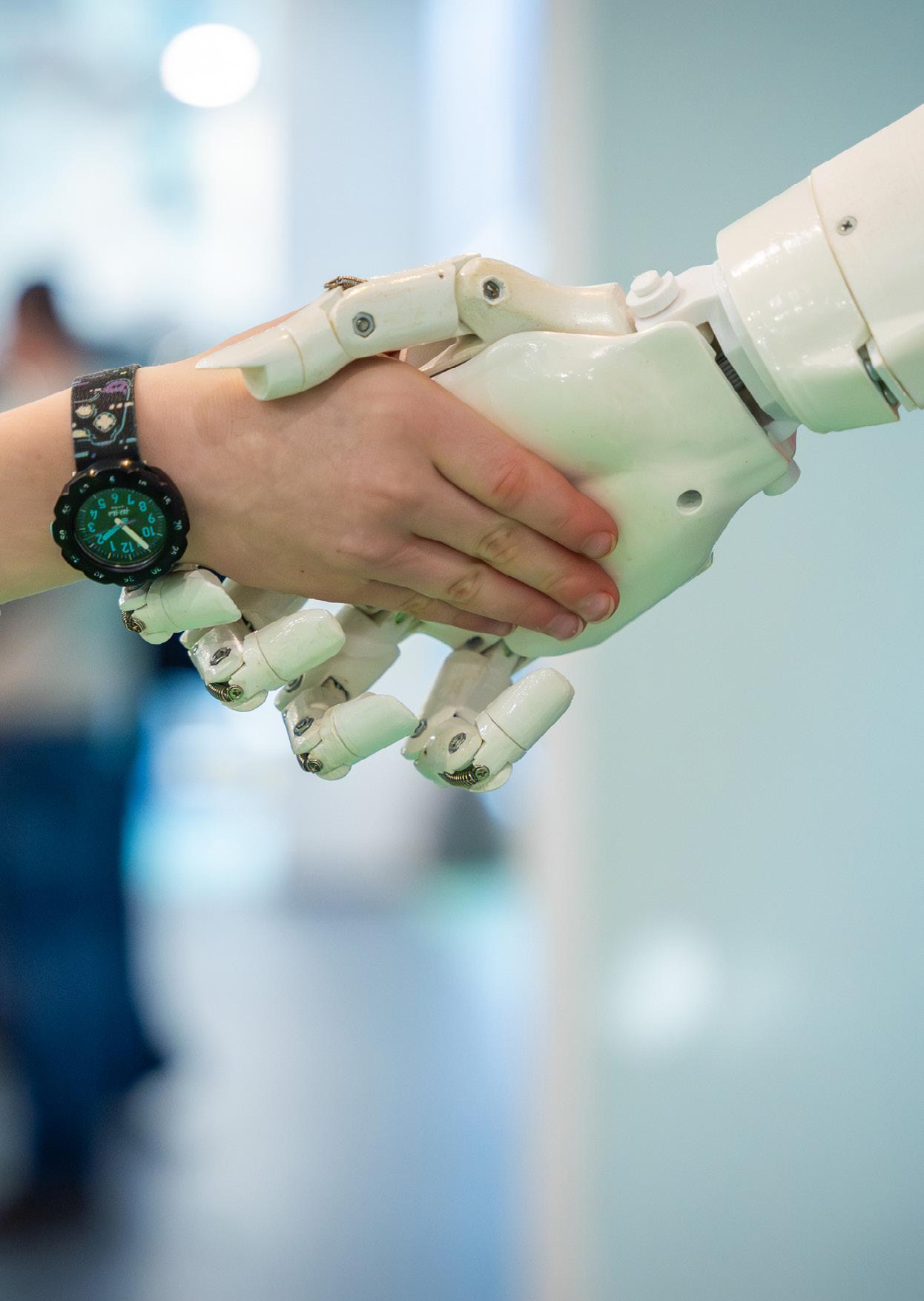
Social Responsibility 6
Throughout 2024, we actively collaborated on sustainability with public and private organisations, strengthening our position in this area and fulfilling our social responsibility. We hosted over 20 international conferences, creatively combining technology and art focused on sustainability. This approach was also reflected in the celebrations of the 125th anniversary of our founding, which focused on themes such as electromobility, environmental engineering, and the circular economy.
Key SDGs

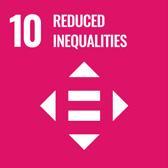






Our Focus in 2024
• Strengthening communication with our alumni regarding sustainability and involving them in university sustainability events (especially through faculty alumni clubs).
• Popularising science and communicating effectively with prospective students about sustainability through university communication channels.
• Building cooperation with primary and secondary schools on sustainability (e.g. summer schools, competitions).
• Strengthening the university’s relationships with the private and public sectors in the Czech Republic and abroad in the area of sustainability.
• Enhancing cooperation on sustainability topics with both domestic and international universities.
• Involving the public in sustainability-related areas through the Continuing Education and Counselling Centre (CECC), including the University of the Third Age (U3V).
• Providing regular updates to the public, media, and strategic partners on current university activities and projects.
• Developing a sustainability communication strategy and engaging key stakeholders.
• Raising public awareness of our sustainability activities through targeted information campaigns.
• Promoting awareness of sustainability and support for eco-friendly lifestyles through culture and the arts (e.g. the Brno Creative Hub KUMST).
• Encouraging student and staff participation in volunteer activities within local communities.
What We Achieved in Practice
In 2024, we actively collaborated with several major companies, including Honeywell, ŠKODA Auto, Siemens, ABB, and E.ON. We also cooperated within the Czech Battery Cluster, alongside organisations such as CEITEC and AGILE EUROPE, on projects focused on developing a zero-emission economy. We are also a member of the Czech National Semiconductor Cluster (CNSC), and in cooperation with the South Moravian Innovation Centre (JIC), we negotiated plans in 2024 to establish the National Competence Centre for Chips and Semiconductors. In 2024, we continued to strengthen our ties with public institutions, especially the South Moravian Region and the Statutory City of Brno. In November 2024, we co-founded the H2vBrno Hydrogen Cluster with Teplárny Brno, Dopravní podnik Brno, and SAKO Brno, focusing on supporting the research and development of hydrogen technologies. We also actively cooperated with both Czech and international universities in 2024, particularly within the EULiST alliance.
We initiated cooperation with foreign organisations from Taiwan and Korea:
• In January 2024, we signed a partnership memorandum with Taiwan focused on semiconductor technologies and the establishment of a research centre for advanced chip design (ACDRC).
• In November 2024, we deepened international cooperation with Taiwanese universities via a memorandum of cooperation in education, research, and academic mobility.
Summer Schools in 2024 for Secondary and University Students
• International summer school on “Water” within ERASMUS+, focusing on water recycling and sustainability (FCH)
• CEITEC Student Talent summer school, dealing with research in sustainability
• IT Summer School for Girls (FIT)
• Summer School of Nuclear Engineering (CENEN)
Cultural and Artistic Activities to Raise Sustainability Awareness
• In autumn 2024, the Brno Creative Hub KUMST organised an exhibition as part of the Creative Technology project, with active participation from our students and academic staff. The project focused on sustainable urban development and improving the quality of life for residents.
• In May 2024, FME took part in the nationwide “Bike to Work” challenge with its “Self-Powered” initiative, promoting sustainable transport.
• In September 2024, we joined the European Sustainable Development Week and the Brno Festival of Science and Technology, where our faculties showcased sustainability-oriented innovations.
Volunteer Activities Within Local Communities (October 2024)
• Clean Up Brno – join us in cleaning the BUT surroundings in cooperation with the Let’s Clean Up the Czech Republic initiative
• Charity event “Koláč pro hospic” (Pastry for Hospice)
• Faculty of Business and Management Christmas Tree
• Cooperation with non-profit organisations
• In September 2024, we signed three memoranda with Korean institutions concerning research into thermal processes, battery technology development, and nuclear energy. Throughout 2024, we continued involving the public in sustainability-related topics through the Continuing Education and Counselling Centre (CECC), which offers a wide range of educational activities. These include regular courses, the University of the Third Age (U3V), and special programmes such as summer schools and competitions. U3V focused on delivering knowledge to seniors, for example through courses and the “Seniors for Health” competition held in June 2024, which addressed themes of sustainability and technological progress.
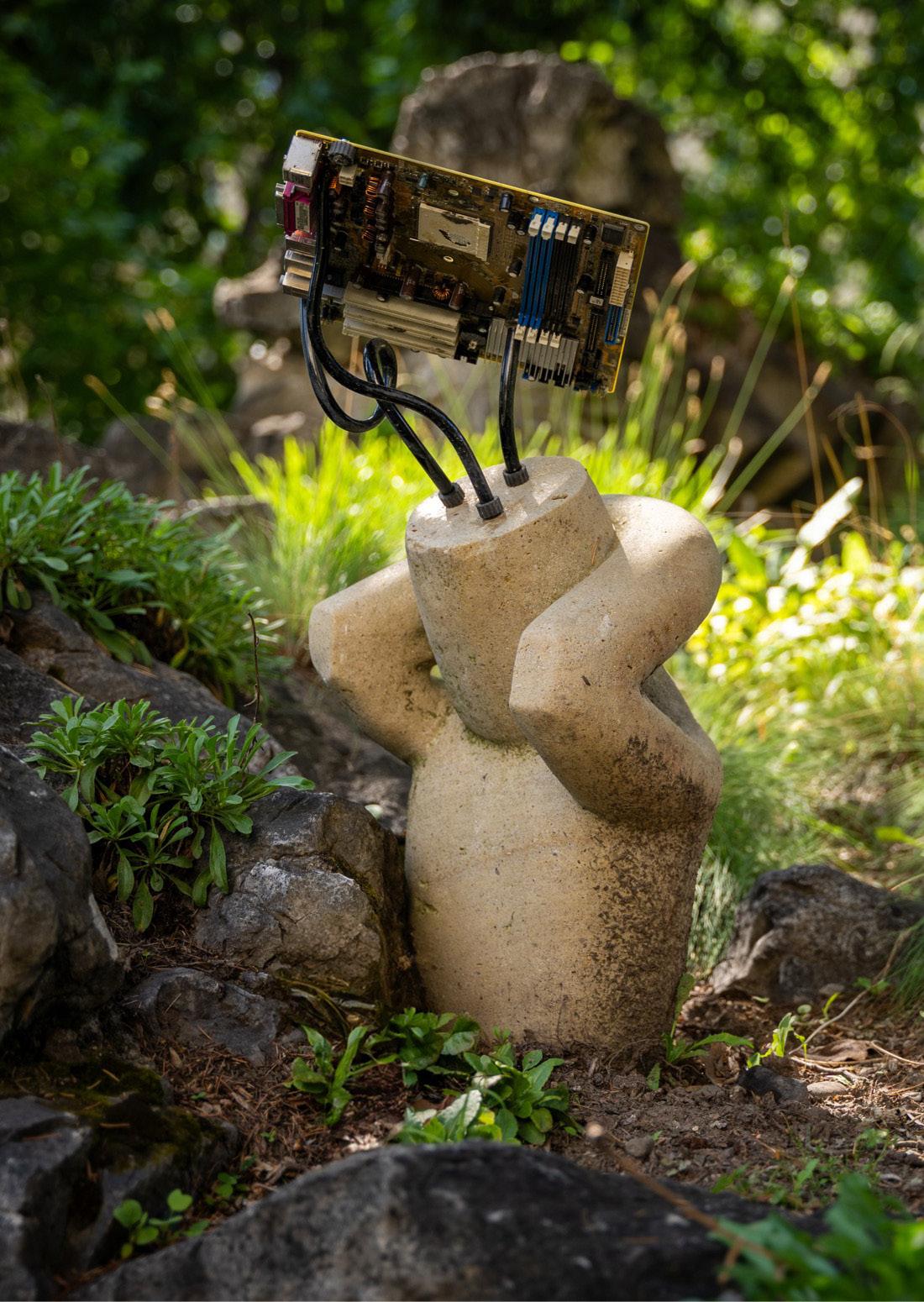
University Operations 7
We focus on the management of our properties, investment construction, and responsible procurement. When constructing new buildings, we take into account the risks of heatwaves and climate change. We support sustainable water management, such as rainwater retention. Our ecological initiatives include the creation of green spaces, tree planting, and adherence to the principles of the circular economy.
Key SDGs











Our Focus in 2024
• Introducing measures in sustainable procurement and energy management at the university.
• Strengthening sustainability within our organisational structure through new tools for managing risks and opportunities.
• Calculating and analysing the university’s emissions footprint, including proposing measures to reduce it.
• Publishing the first BUT Sustainability Report.
• Implementing a digital system for monitoring the university’s emissions footprint.
• Introducing sustainable measures in the university’s circular economy.
• Designing water and waste measures aimed at reducing the emissions footprint.
• Carrying out a sustainability data gap analysis and developing a management plan for these data.
• Monitoring university rankings, reporting on our results, and proposing actions to improve sustainability.
• Implementing a transparent system for human resources support and management.
What We Achieved in Practice
TOPIC DESCRIPTION OF ACTIVITY
ENVIRONMENTAL PROJECT OFFICE – GREEN HRDS BUT
MOBILITY
RESPONSIBLE PUBLIC PROCUREMENT
Since 2019, we have operated the environmental office Green HRDS, focused on the sustainable operation of the Halls of Residence and Dining Services. It works on ecological initiatives and, with the support of the Alfons counselling centre, also specialises in inclusion and accessibility for students with special needs. It invests in energy-saving measures and is preparing buildings for the installation of photovoltaic panels, with insulation planned for the following year. Bicycle storage facilities with charging points for electric bikes and scooters are available to students and staff at the Halls of Residence Pod Palackého vrchem.
We support sustainable mobility by providing bicycle storage, stands, and chargers for electric bikes and scooters. FEEC offers charging stations for electric vehicles. In 2024, we operated two electric cars and three hybrid vehicles. The Green ERASMUS programme motivates students and staff to travel more sustainably with travel grants.
We engaged in responsible public procurement and incorporated social and environmental aspects. Digitalisation was mandatory for all selection procedures. We are a member of the Socially Responsible Public Procurement Platform, where we share experience and knowledge.
EFFICIENT WATER MANAGEMENT
CIRCULAR ECONOMY
We introduced systems for rainwater retention, which is then used for irrigating green areas. At the Faculty of Mechanical Engineering site Pod Palackého vrchem, an extensive rainwater harvesting system was implemented to collect water from rooftops. The Faculty of Chemistry installed underground tanks for rainwater collection.
Supporting the circular economy is a priority at our university. We focus on waste prevention and conserving raw materials, including the proper sorting and reuse of construction waste from demolished buildings.
ENERGY MANAGEMENT
BIODIVERSITY
Our energy management focused on optimising energy use and the sustainable operation of buildings, including consumption monitoring. We carried out energy-efficient renovations in accordance with nZEB standards and installed photovoltaic panels at FEEC and FIT. We also modernised lighting, heating, and cooling systems using a Building Management System (BMS) and employed a Geographic Information System (GIS) for campus management.
We support biodiversity through beekeeping at FCE and CEITEC, annual tree and greenery planting organised by FBM, the installation of birdhouses, and the introduction of composters. Green roofs were implemented at FAST and CEITEC. In 2024, we also carried out a comprehensive inventory of green areas across the university campus.
Our People
People are the heart of the university and play a vital role in our sustainability efforts. We strive to create an inspiring environment that supports both professional development and personal wellbeing. Diversity and inclusion are fundamental values that shape our culture of fair treatment.
Courses Offered by the CECC to Support the Balance Between Study, Family, and Work Life:
• Mindfulness courses
• Physical activities
• Sleep hygiene
• Focusing for managing academic and other responsibilities
• Relaxation techniques to improve wellbeing and mental health
Our Focus in 2024
• Developing career and psychological counselling for staff and students through the Continuing Education and Counselling Centre (CECC).
• Supporting students in balancing study with family and working life (including caregiving parents and disadvantaged student groups).
• Providing assistance to applicants and students with specific needs through the Alfons Counselling Centre.
• Educating staff in social areas (equal opportunities, discrimination, and effective communication with disadvantaged students) via CECC.
• Supporting students and staff in difficult life situations through the S-kompas service provided by the CECC.
• Regularly informing the public, media, and our strategic partners about the latest projects and achievements of our students and researchers.
• Actively supporting student associations and organisations that integrate sustainability into their activities.
• Participating in mentoring and activities for newcomers through the Student Chamber of the Academic Senate (SC AS BUT).
In 2024, we focused on promoting equal opportunities for academic staff and students. Measures included part-time contracts, remote work options, and flexible working hours. Academic staff have access to 6–8 weeks of holiday, and everyone can access psychological counselling. We also offered a range of sports activities and operated the Edisonka mini-nursery. In addition, we launched the Social Safety platform to ensure a fair environment and address inappropriate behaviour. A Social Safety Coordinator is available, and secure feedback boxes are located around the university for use by students and staff.
TOPIC
RESEARCH INTO BIOPLASTICS AND MICROBIAL DEGRADATION
FIRST DEAF ENGINEER AT BUT
STUDENT SATELLITE DEVELOPMENT WITH YSPACE
DESCRIPTION OF ACTIVITY
Karel Sedlář (FEEC) studies how bacteria create and break down bioplastics. He uses waste sugars and is developing a gene database responsible for biosynthesis. The research is supported by a prestigious JUNIOR STAR grant.
Tomáš Zbavitel, deaf since birth, graduated from FME. He overcame communication barriers thanks to the support of the Alfons Centre and his interpreters.
Dominik Klement founded the YSpace team at FEEC and began work on a student satellite. The project includes collaboration with MENDELU on a biological experiment and testing components developed at FME.
ENERGY OF THE FUTURE AND INNOVATION AT CEITEC
IMPROVING SOLAR CELL EFFICIENCY
ELECTRIC DRIVE CONTROL ALGORITHMS FOR THE STUDENT FORMULA CAR
Professor Martin Pumera leads a research group at CEITEC focused on new energy concepts, such as converting body heat or chemicals in sweat into electricity.
Pavel Klok from the Institute of Physical Engineering at FME researches perovskites – materials with the potential to increase solar cell efficiency.
Matúš Kavec, FEEC student and TU Brno Racing team member, is developing an algorithm for vector control of a permanent magnet motor in electric vehicles. The aim is to optimise the performance of the student formula drive system.
HANDMADE HANDBAGS
MENTAL HEALTH
BIOFERTILISER DEVELOPMENT
OPTIMISING HEAT AND ELECTRICITY PRODUCTION FROM WASTE
BIOPLASTIC PRODUCTION
TEXTILE ART AND SUSTAINABILITY IN THE ARTS
WASTEWATER RECYCLING
BUT graduates Jaroslav Vaculík (FME) and Nikol Dudová (FBM) founded the Ogarbags brand, specialising in handmade handbags and satchels made from naturally tanned leather and recycled wood.
Ing. Veronika Kamenská, FEEC graduate, co-developed the Nepanikař (Don't Panic) app, which provides support to people experiencing anxiety and depression.
Martin Súkeník from FCH is developing a biofertiliser strategy involving the encapsulation of beneficial bacteria in gel form.
Ing. Marek Kollmann from FME developed machine learning models to improve energy production planning in Waste-toEnergy (WtE) facilities.
Katarína Šlosárová from FCH modifies bacteria to increase the production of biodegradable plastics (PHA).
Judita Levitnerová, a doctoral student at FFA, creates textile artworks from recycled synthetic materials.
Experts from the Institute of Process Engineering at BUT, in collaboration with Hutira, developed a technology combining evaporation and stripping for recycling wastewater from wineries.
Our Carbon Footprint
Measuring the emissions footprint is a key tool for our university in promoting sustainability, education, innovation, and environmental responsibility. Annual emissions footprint analysis enables us to identify the main sources of greenhouse gas emissions and to adopt effective reduction measures. By comparing results across years, we monitor our progress toward the goals set out in our Sustainability Strategy.
Scope of Emissions Footprint Measurement
Since 2023, which we have designated as the baseline year for regular monitoring, we have been measuring our emissions footprint in accordance with the GHG Protocol, within three scopes:
• Scope 1: Includes direct greenhouse gas emissions from natural gas consumption and our vehicle fleet.
• Scope 2: Includes indirect emissions from purchased electricity and heat.
• Scope 3: Reports emissions from business travel, water use, and waste management.
The measurement process is broken down by individual faculties and university institutes and proceeds in several stages. First, we update the monitoring scopes and add new categories where possible. We then collect data from faculties and institutes, including energy bills, information on employee business travel (by car, bus, plane, train), waste volumes, and water consumption. Emissions are calculated using official emissions factors for each category. Once calculated, we analyse the results to identify the main sources of emissions and areas for potential improvement. The results are shared with the university community and other stakeholders to encourage active engagement in building a sustainable future.
To date, our university has measured its emissions footprint twice, with 2023 marking the start of regular annual monitoring across the three main scopes. Between 2023 and 2024, we recorded a slight increase in our emissions footprint, partly due to more precise data collection and the inclusion of new items, such as emissions from air travel. In 2023, the emissions footprint was 19,041 tonnes of CO₂e; In 2024, it increased to 20,349 tonnes of CO₂e. Changes by Scope:
• Scope 1: In 2024, there was a slight increase in emissions from natural gas consumption. The increase in kilometres driven by diesel and hybrid passenger vehicles led to a rise in fleetrelated emissions. Emissions from universityowned and operated aircraft were monitored for the first time.
• Scope 2: Emissions from purchased electricity and heat continue to make up the largest share of the university’s overall emissions. In 2024, an increase in the use of non-renewable electricity was the main contributing factor to the rise in emissions.
• Scope 3: In 2024, business travel-related emissions increased by 30% compared to 2023, with air travel accounting for the largest share. Emissions from accommodation rose due to an increase in overnight stays during business trips. Emissions from car and train travel remained stable, while bus travel emissions increased. In the waste category, new categories were introduced and reporting was improved in 2024, but the overall emissions footprint remained nearly the same as in 2023. Emissions from water consumption saw a slight decline.

What We Value 8
Thanks to our ongoing improvements in education and research, our university continues to rank among the top institutions in international university rankings. In the QS World University Rankings 2025, we achieved our best result in the past six years, placing us among the top 41% of universities globally and top 5 in the Czech Republic. This strong performance was driven by our high proportion of international students, the number of international student exchanges, and our employer reputation. We also achieved a notable result in the QS World University Rankings: Sustainability 2025, where we ranked 477th globally, scoring particularly well in areas such as governance, research, and graduate employability.
Our performance in subject rankings was also outstanding. In the QS World University Rankings by Subject 2024, we retained second place among Czech universities in engineering and technology subjects. In the field of electrical engineering, we ranked among the top 300 universities in the world, placing us alongside CTU as one of only two Czech representatives in this ranking. In November 2024, we submitted our first report to the Times Higher Education Impact Rankings (THE-IR), which assess universities’ contributions to achieving the Sustainable Development Goals.
In the area of human resource management, we received the HR EXCELLENCE IN RESEARCH Award in 2021 as part of the Human Resources Strategy for Researchers (HRS4R) process. We successfully renewed the award in 2023 for another three-year period and prepared an updated version of the HR Award Action Plan for the period 2023–2026.
BUT Membership in International Networks
Our university is strengthening its international presence through membership in networks such as the European University EULiST (European Universities Linking Society and Technology), the prestigious CESAER network of technical universities, the European University Association (EUA), the European Quality Association for Recycling, and the International Council of the Aeronautical Sciences. We have also concluded over 270 international agreements and 769 partnerships within the Erasmus programme.
EULiST Alliance (European Universities Linking Society and Technology)
CESAER
We are part of the European university alliance EULiST, which we have been chairing since 2024, with the Rector of BUT serving as President of the Alliance’s Governing Board. EULiST is regarded as a knowledge-driven think tank involving the partnership of nine European universities. The alliance also focuses on sustainability. Currently, EULiST is developing a Scientific Strategy aimed at supporting technological progress toward innovative solutions to social and environmental challenges.
In May 2024, our university hosted the EULiST General Assembly, which featured inspiring meetings and workshops on various aspects of the alliance's future. In November, we held the first-ever EULiST Day, which included a discussion on strengthening regional ties within the Brno–Vienna–Bratislava triangle.
Our university is the only higher education institution in the Czech Republic participating in CESAER, a prestigious research network of technical universities. In April 2024, Brno hosted a meeting of the CESAER Task Force on Learning & Teaching, during which the CESAER White Paper titled “Engineer of the Future” was published. This document outlines key trends in European engineering education, including sustainability.
Member universities of the CESAER network acknowledge their social responsibility and are committed to building a greener and fairer future. This is affirmed by the Declaration on the Contribution of Universities to Sustainability, adopted at the October 2023 meeting in Madrid. The document sets out principles and measures aimed at achieving the United Nations Sustainable Development Goals (Agenda 2030).

Links to Other Documents 9
Documents Related to Sustainability
Other Key Documents
• GRI index
• BUT Sustainability Strategy
• BUT Strategy 2030
• Implementation Plan for the BUT Strategic Intent 2024
• BUT Code of Conduct
• BUT Gender Equality Plan 2025–2028
• HR Award Action Plan for 2023–2026
• BUT Annual Report on Activities for 2023 (2024 update in progress)
• BUT Annual Financial Report for 2023 (2024 update in progress)
• Guide to Work–Life Balance
• BUT Gender-Sensitive Communication Code
• Employee Handbook
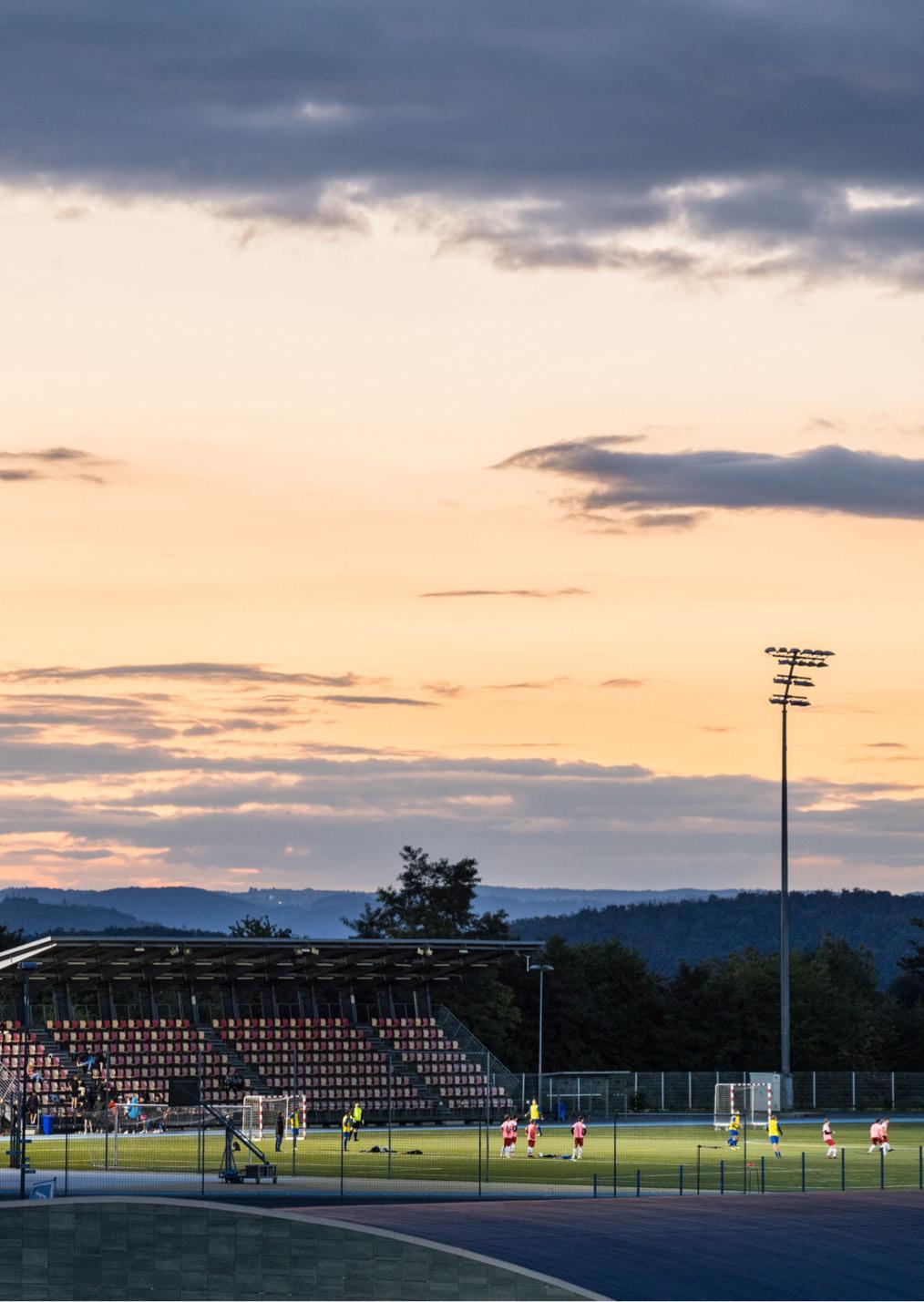
GRI Index (Content Overview)
This GRI Index provides a list of disclosed information in line with GRI Standards and an overview of our university's 2024 Sustainability Report. The GRI Index facilitates the search for relevant information by referencing its location in the Sustainability Report.
Detailed Measurement of GRI Indicators for 2024
GRI 2-7 | Information on Employees, GRI 2-8 | Information on Other Workers
GRI 2-29 | Stakeholder Engagement Approac
Notes: Emissions in Scope 2 are calculated using the market-based method. In 2024, the vehicle category in Scope 1 was expanded to include university-owned and controlled aircraft. Additionally, the waste category calculation was refined in 2024
GRI 306-3, 306-4, 306-5 | Waste
STUDENT SCHOLARSHIPS BY PURPOSE (INTERNAL INDICATOR)
List of abbreviations
AdMaS Advanced Materials, Structures and Technologies
BMS Building Management System
CEITEC Central European Institute of Technology
CENEN Summer School of Nuclear Engineering
CESA Center of Sports Activities
CESAER Conference of European Schools for Advanced Engineering Education and Research
CIS Centre of Information Services
CNSC Czech National Semiconductor Cluster
CVP Center for Education and Counselling
CVVOZE Center for Research and Utilization of Renewable Energy Sources
EULIST European Universities Linking Society and Technology
FA Faculty of Architecture
FCE Faculty of Civil Engineering
FFA Faculty of Fine Arts
FEEC Faculty of Electrical Engineering and Communication
FCH Faculty of Chemistry
FIT Faculty of Information Technology
FBM Faculty of Business and Management
FME Faculty of Mechanical Engineering
GAČR Czech Science Foundation
GHG Protocol Greenhouse Gas Protocol
GRI Index Global Reporting Initiative Index
HRDS Halls of Residence and Dining Services
IFE Institute of Forensic Engineering
KUMST Creative Hub Brno
MPO Ministry of Industry and Trade
NETME New Technologies for Mechanical Engineering Centre
RE Rector´s Office
SDGs Sustainable Development Goals (UN)
SK AS VUT Student Chamber of the Academic Senate of BUT
TAČR Technology Agency of the Czech Republic
U3V University of the Third Age
